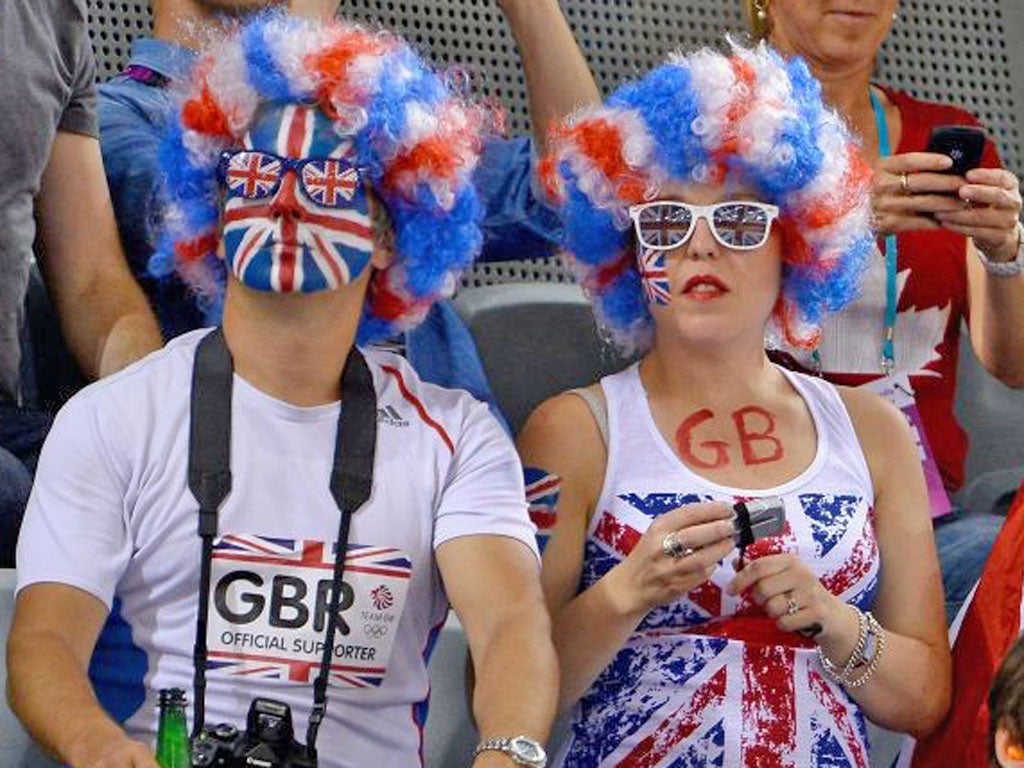Sam Wallace: Remember, football can be force for good

Good old Team GB: humble, successful, erudite, honest. They are the nation's new sporting favourites and deservedly so.
Bad Premier League footballers: greedy, irresponsible, over-rewarded for mediocrity. Like problem children, they have been told so often how naughty they are, the criticism has become a self-fulfilling prophecy.
Is the debate really as simple as that? Last week I spoke to a senior figure in the academy of a leading London football club who has devoted his professional life to developing young kids into elite players and responsible adults.
Around 70 per cent of his academy players come from what might politely be described as "challenging" areas. They are reluctant to hop on a train or bus to the academy because that would involve crossing those invisible lines that differentiate gang territories.
These are borders that you and I do not have to worry about, but for a 14-year-old boy from a single-parent family living on a council estate they are very real and very frightening.
The situation became so bad that the club took to hiring minibuses to collect its players. When the drivers pulled into some of the estates they noticed large gangs of boys running away. They had assumed the minibuses were unmarked police vehicles.
That is a small example of the reality of many clubs' elite football development schemes. They recruit largely from urban areas and disadvantaged communities who happen to produce extremely talented players.
Many of the inner-city boys whom the clubs scout from the estates by word of mouth have had little experience of organised football, even by their teens.
Some of these young men can be very difficult to mould into professional footballers and some of them who do make the grade do not always demonstrate the best judgement when it comes to their professional lives. There will be exceptions to the rule but, by and large, this is what English football is dealing with.
Football draws its players from some of the lowest-income communities in the country and as such will always reflect some of the problems, as well as the strengths, of those communities.
Unlike Team GB, in football university graduates are rare. The structure of football is not built around higher education. Clubs have a vested interest in their academy boys becoming successful footballers but they are also some of the few institutions reaching into the kind of urban environments that government and local authorities are struggling to improve. They do so because football is not a sport like cycling and rowing, the two standout successes for Team GB, that lends itself to "late entry".
The technical requirements of elite football mean players need to be immersed in it from a very young age, especially in those crucial years up to the age of 11 when, it is generally accepted, the core skills are learnt.
It is a pity that football clubs do not make more of their academy staff who, on the whole, are excellent people. The rewards are there for those boys who make it as professionals, but their academy coaches will never be multimillionaires.
English football will continue to work on the front line, coaching young players, often from difficult backgrounds. Many of those players will become likeable, responsible stars of the game who also happen to earn telephone-number salaries.
Others will crash their high-performance cars, behave inappropriately and generally look stroppy off the pitch with their oversized earphones and surly entourages. People will wonder aloud why they are not more like Team GB.
But things are not always as simple as they seem. Just ask that 14-year-old boy on a London estate for whom the simple act of getting to training is a seriously dangerous exercise.
Join our commenting forum
Join thought-provoking conversations, follow other Independent readers and see their replies
Comments
Bookmark popover
Removed from bookmarks